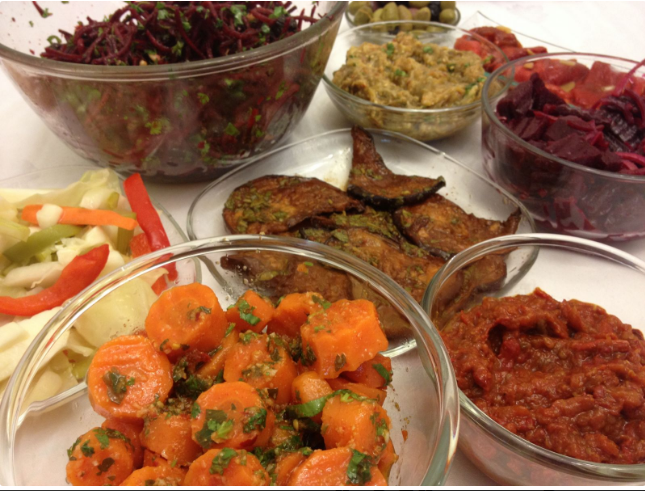Jewish cuisine "What does the Holy Day Table look like every week for my Jewish family?"
I grew up in a religious Jewish family. This has affected my life in many ways (although I am not religious today), but in our context - it has a lot to do with the food you eat. In principle, in the Jewish kitchen "kashir" (halal), it is forbidden to mix milk products of all types of meat. It is forbidden to eat seafood except fish, and similarly to Islam, it is forbidden to eat pork. All this restricts the Jewish kitchen kitchens, but every problem has a solution. For example, the Moroccan cuisine, which spawned a lot of flavors, is replaced with spices, plants and vegetables that enrich food a lot. In Israel today there are so many restaurants and houses that do not attach importance to the question of "halal", and can find almost every meal on different forms. But the Jewish kitchen will always have a place in my heart.
When I think of Jewish cuisine, I immediately think of a Saturday evening meal (Friday night and Saturday) at my parents' house. Once a week, on Friday evening, after sunset, after the men return from prayer, the entire family gathers for a festive meal, to celebrate Saturday, the holy day of rest in Judea. The meal begins with the sanctification of alcohol - permitted in Judaism - through the blessing on bread - which represents the hard work of the whole week and the transition to the day of rest - and then continue with many delicious and festive food.
In our home, recipes are almost constant. The table is full of salads: hot cooked salad, carrot salad (some fresh and some cooked), beetroot salad (sauteed), fried hot pepper, roast eggplant salad, fried eggplant, olives, fresh vegetable salad and lots more , So there is no place left on the table almost.
While everyone is busy tasting all the authorities, my mother distributes the first meal - the traditional Moroccan fish, which we will not give up on Friday, whatever the price. Fish is a fillet comb, a very beloved fish in Israel, growing in fresh water. The sauce is a hot and spicy tomato sauce: in a wide saucepan, a little fried oil, a lot of garlic, sweet red peppers, one hot peppers, and pieces of peeled tomatoes. Add the tomato puree, a little water, and add pre-cooked chickpea granules as desired. We are famous for many sweet and hot red peppers, a little turmeric, salt and brown pepper. After all, add a lot of coriander, and then just put the fish to cook a bit. Warmly recommended by eating with warmed white bread. For me this house and family flavor, and thus the most delicious flavor in the world.
After fish, they generally offer a chicken or meat meal, but I am generally saturated with fish, and the taste is best kept longer. After everyone has finished, we have sweet tea with lots of mint - the only thing that prepares it from the job of father ...
Did you know?
The term "kashrut" corresponds to the term "halal" and refers to the foods that the believer is allowed to eat. For example, until the meat is halal, a cleric must make sure that the animal has been slaughtered according to the Shariah. Some clerics inspect Halal restaurants to make sure that no pig or other animals are forbidden to eat in Judea (which allow beef, sheep and goats) Chicken, and fish. For example, eating predatory animals and eating everything like monkeys, dogs, and cats is similar to Islam, nbut camel meat, an analyst in Islam, is forbidden in Judaism, and eating or drinking blood and its products is haraam. Both religions).
Thank you for reading my article. If you fun of my blog , please vote to me.
Amelia

